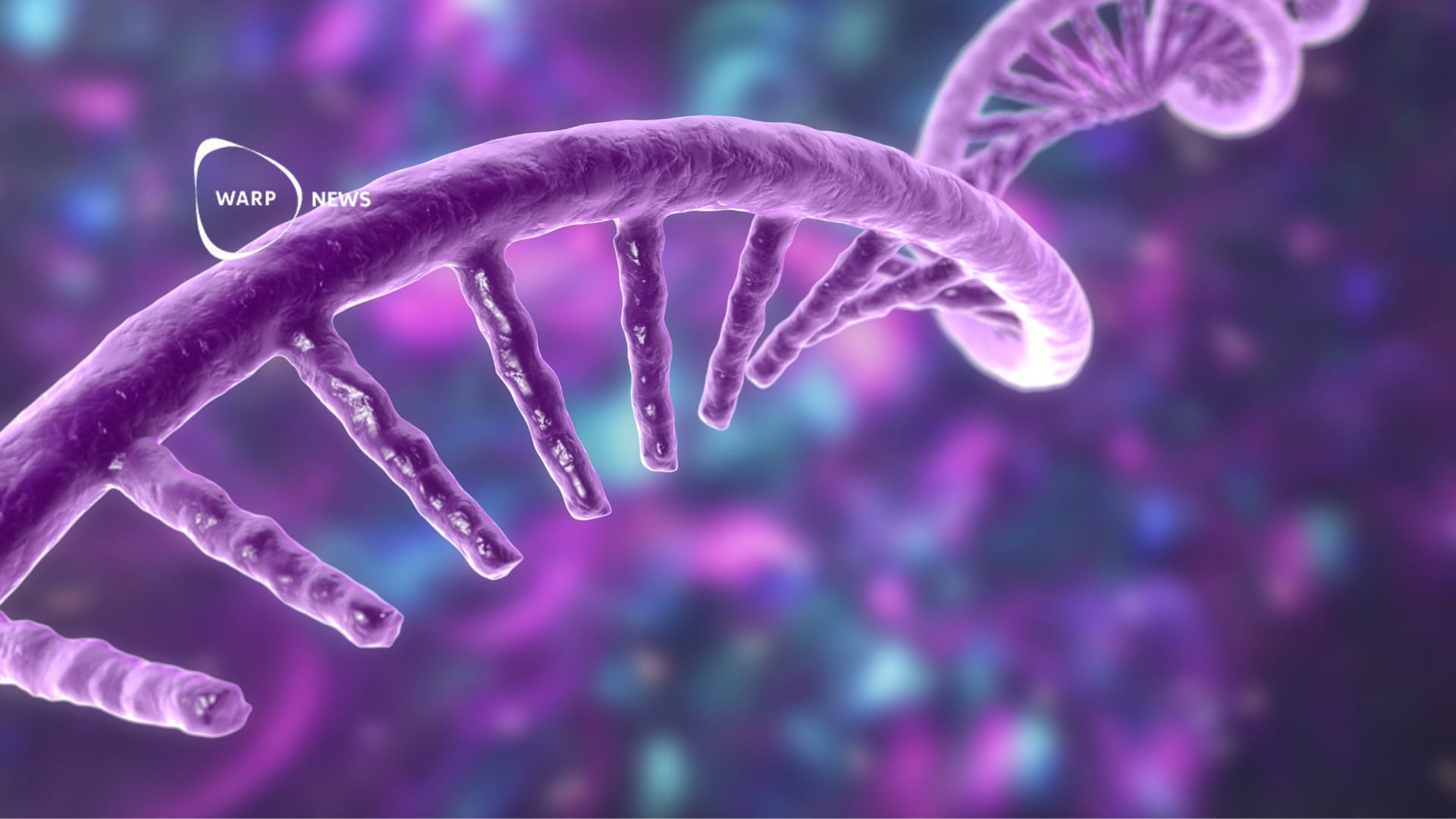
💪 Why embracing change is the best way coming out of the pandemic
Covid-19 is reshaping core parts of society. Some losses are evident, but the benefits associated with change are at times underestimated. This is also the case with the pandemic.
Share this story!
Change is inevitable, especially when coming out of a crisis. But how much the world is changing after the pandemic is yet to be answered.
Recently, the OECD initiated a policy discussion on the impact of the Covid-19 pandemic as fundamental parts of how societies work is being remodeled. The organization concludes that science, technology, and innovation (STI) are three main areas where change is expected to be most visible.
Accelerated adoption of digital tools and techniques and inclusiveness in innovation, and a heightened level of experimentation are some of the key areas pointed out in the organization's policy paper released earlier this year.
Towards a "New Normal"
The larger debate on how the world is changing due to Covid-19 was raised early in the pandemic. Tech giant Bill Gates, for instance, predicted that life would be altered immensely by the pandemic. The "new normal" would imply events ranging from normalization of remote meetings, radically improved software to reshaped communities.
One community that really was put at strain during the initial phase of the pandemic was the scientific community. The speed with which the vaccines were developed was only possible through a generous sharing of data and successful global collaboration around the same.
Editor in Chief of the prestigious science journal Nature, Magdalena Skipper, hopes that the "emphasis on international collaborations will continue in the research community,” as well as "also be taken up as an example beyond the research community itself,” noting that whilst scientists have been working closely together globally, policy work has still been confined to the local level.

Also, for other research groups, such as social scientists, the COVID-19 pandemic has offered unique opportunities being itself a somewhat "natural experiment."
Andreas Olsson, a psychologist at the Karolinska Institute in Stockholm, describes a whole new research opportunity when people from different groups around the world suddenly face the same situation:
"We can see how people respond differently to this depending on culture, social groups and individual differences”, he says to Nature.
In addition, collaborations between researchers in similar fields have grown as individual researchers are studying different angles of the same question.
More, not less, innovations post-pandemic?
However, insights from past crises suggest that innovation performance at large could be at risk as the world enters a new phase. Although, OECD also stresses that the characteristics of the COVID-19 crisis differ somewhat from previous economic crises.
While sectors such as automotive and aerospace were hit hard by the pandemic, other sectors as health and digital tools have seen a surge in demand. The demand for future preparedness could, in fact, lead to increased investments in several areas.
The pandemics' effects on society have further been mapped out by the UN, World Economic Forum, and other organizations and range from limitations of movement for migrants, diminishing employment opportunities, decreased consumption to worsened health outcomes, and growing inequality.
"The COVID-19 outbreak affects all segments of the population and is particularly detrimental to members of those social groups in the most vulnerable situations" (UN).
The World Economic Forum (WE) estimates that 114 million jobs were lost in 2020, and by adding working-hours reductions to the figure, it in total means that working-hour losses amount to around four times as high (!) as during the financial crisis in 2009.
Yet, the picture is neither black nor white, even regarding this aspect.
Some argue that the crisis has accelerated and sharpened the focus on movements such as digitization and AI that were not addressed properly before.
Wisely handled, many lost jobs could be replaced - and even outnumbered with the ongoing digital shift.
"A unique window"
These are some of the major changes brought on by the pandemic, affecting science, societies, and humans in various ways. What else has changed?
For both the environment and humans, several direct positive outcomes have been noted.

Studies show that lockdowns are associated with lower levels of both air pollution and seismic noise. Both of which can improve the health and well-being of large populations, especially growing children and those with certain types of conditions such as asthma.
Despite the severity of the disease Covid-19, the medical journal BMJ, in fact, describes the pandemic in large as "a unique window through which to view some positive health effects from major changes in human behavior."
The same journal also points out the positive consequences of a sharp decline in traffic accidents, citing a report from the Road Ecology Center at the University of California. The decline in accidents means large public savings every day.
Related sightings on the effect on the traffic and lives saved have been made in Poland. Polish researchers, who share their findings in the open-access journal MDPI, found that there have been over 50 percent fewer roadkills during the pandemic, which could benefit wildlife.
"Reduced road mortality in the case of hedgehogs may mean tens of thousands of survivors nationwide. We hypothesize that this may result in a change in the demographic and genetic characteristics of the population of hedgehogs, and also help to stop the long-term decline in the number of hedgehogs in Europe."

Remoteness is here to stay
When the magazine Fortune dived into the consequences of the pandemic one year into the crisis, remote work was a central issue. Many employees who have been working remotely during the pandemic said that after the pandemic, they want to be able to choose from where they work.
That is a profound shift, with which companies will need to grapple for years. Yes, businesses will save millions on utilities and office rent. And there is also saved productivity, lost before to hours spent in needless meetings or on long commutes.
McKinsey's report on the future of work finds "about 20 to 25 percent of the workforces in advanced economies could work from home between three and five days a week". This is four to five times more remote work than before the pandemic.
The kids are fine
Being a parent has also changed during this last year and a half. Before Covid-19, most parents juggled drop-offs and pickups into crammed long office days searching for the desirable "balance" between work and family life. Today, parents instead juggle having kids at home whilst working from the same home.
Yet, despite the common perception that the pandemic has been stressful for families, there is also proof that it, in some senses, has been good both for adults and children.

In a World Economic Forum study, parents report significantly better parental and relational outcomes comparing spring 2020 with spring 2019. Both mums and dads have experienced positive outcomes.
"Fathers reported less avoidant attachment and parental stress while mothers displayed better life satisfaction. Both fathers and mothers also reported better relationship satisfaction and stronger parental alliance."
Also, a recent study on young people's mental health during the pandemic shows that the social restrictions have not had negative consequences for the group. Many, in fact, reported feeling being more in control over their lives during the pandemic.
The results are intriguing also in relation to larger studies on overall psychological health. When the Atlantic let professors in psychology examine how people have been handling the pandemic, the results were more promising than most narratives circulating in media: "the astonishing resilience that most people have exhibited in the face of the sudden changes brought on by the pandemic holds its own lessons," the psychologists conclude adding:
"We learned that people can handle temporary changes to their lifestyle—such as working from home, giving up travel, or even going into isolation—better than some policy makers seemed to assume."
The only way is up
Despite the severity of the corona pandemic coming out from the crisis, it might just be possible for the world to both recover and even flourish in certain aspects.
To make the most out of the potential, however, will require solid leadership. A famous take-away from a former political leader sums up the inbuilt conflict with these post-pandemic times:
“Change is the law of life. And those who look only to the past or present are certain to miss the future.” (John F. Kennedy).
By becoming a premium supporter, you help in the creation and sharing of fact-based optimistic news all over the world.


